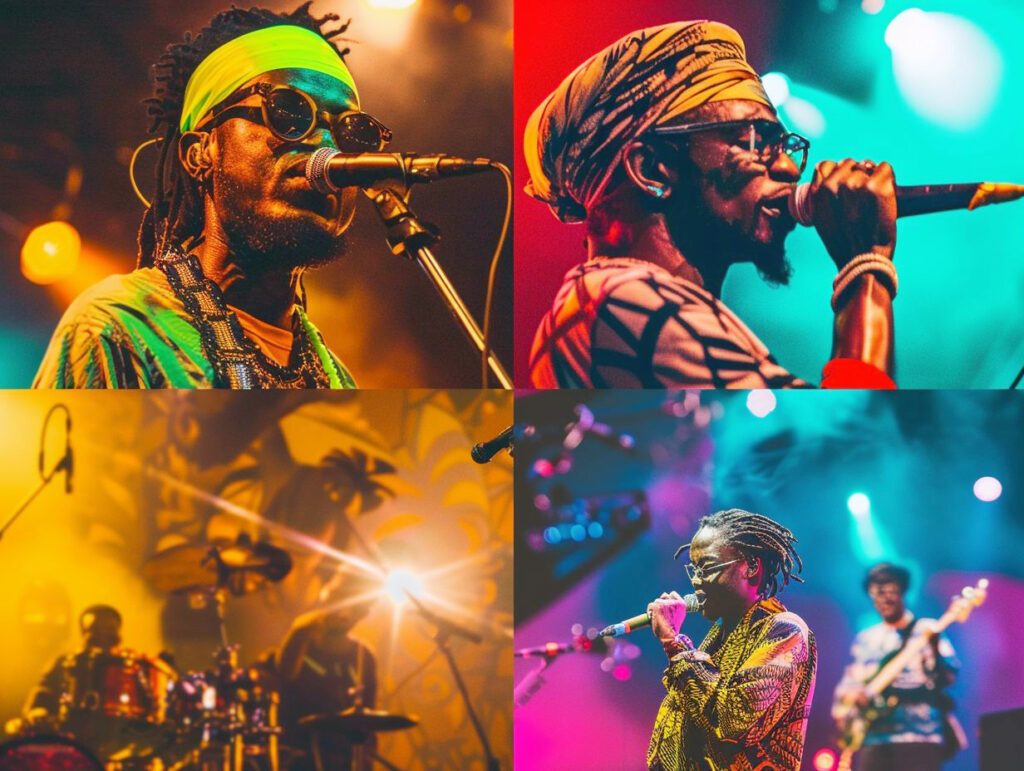
By Patience Chat Moses
In the past decade, the world has witnessed the fast rise of Afrobeat, a genre born from the streets of Lagos and Accra, now thriving as a global cultural force. Its infectious rhythms, melodic versatility, and celebration of African identity have made Afrobeat a vehicle for both entertainment and cultural diplomacy, connecting the world to Africa’s vibrant heritage.
Origin and Evolution The musical genre Afrobeat originated in the 1960s and 1970s as a blend of traditional Yoruba music with jazz, West African music; Highlife, Fuji and funk. Afrobeat was created by the Nigerian legend, Fela Anikulapo Kuti, who achieved fame for his musical talent and involvement in post-colonial African politics. Fela’s recordings from the 1970s made a significant impact on the Nigerian music scene and rapidly gained popularity around the globe. He is now considered one of the most influential musicians in the world. Afrobeat precursors also began in Ghana in the early 1920s. During that time, Ghanaian musicians incorporated foreign influences like the foxtrot and calypso with Ghanaian rhythms like Highlife. Highlife was associated with African aristocracy and was played by numerous bands including the Jazz Kings, Cape Coast Sugar Babies, and Accra Orchestra. But it was the electrifying music of Fela in the 1970s that catapulted Afrobeat across Africa. Fela was inspired by the Black Power movement and the Black Panther party.
His lyrics were infused with social commentary, political critique, and Nigerian proverbs. He criticized the military dictatorship in Nigeria. He supported the newly gained independence from colonial rule across Africa, Fela encouraged self-reliance and self-pride. Today, Afrobeat is a modern fusion of traditional African rhythms with elements of dancehall, reggae, hip-hop, and R&B. Pioneered by Nigerian artists like Wizkid, Davido, and Burna Boy, this genre reflects the urban dynamism of African cities. Themes of love, resilience, and celebration of African pride are woven into the music, making it relatable across cultures while maintaining its African roots.
Globalization of Afrobeat The genre’s global expansion can be attributed to the digital revolution, particularly streaming platforms like Spotify, YouTube, and Apple Music. Social media platforms like TikTok have amplified its reach, with viral dance challenges driving massive audience engagement. Collaborations with global stars like Beyoncé featuring Wizkid on Brown Skin Girl or Drake and Wizkid on One Dance, have introduced Afrobeat to new audiences. Festivals like Afro Nation and major streaming playlists dedicated to the genre have further solidified their presence on the global stage. Afrobeat is no longer confined to African communities abroad; it resonates with a universal audience. Cultural Exchange Through Afrobeat At its core, Afrobeat serves as a channel for cultural exchange. It provides a platform for Africa to tell its stories, celebrate its traditions, and showcase its languages. From Pidgin English to Yoruba and Twi, African languages are now sung, streamed, and danced worldwide. This is a powerful counter-narrative to stereotypical depictions of Africa, presenting the continent as creative, innovative, and influential. Moreover, the genre fosters reciprocal exchange. International artists now integrate African sounds into their music, and global fashion and dance have drawn inspiration from Afrobeat culture.
The “shaku shaku” and “zanku” dance moves are some that went global when they were in vogue, mirroring the influence of break-dancing or hip-hop in earlier decades.
The rise of Afrobeat has also had economic impacts. Nigeria, in particular, has seen its music industry emerge as a major export, with artists securing international deals and awards. This cultural currency boosts tourism and brings soft power to African nations. Governments and organizations have leveraged Afrobeat as a tool for fostering diplomatic relations and showcasing the continent’s positive image. For instance, for some years, the African Energy Chambers, and Organizers of the African Energy Week have used its concerts to bring energy stakeholders together while discussing Africa’s energy features. Afrobeat artists like Teni, Ruger, Flavour and others have been featured in many editions of the event.
In essence, Afrobeat has transcended borders to become a global phenomenon, uniting people through the universal language of music. As it continues to gain prominence, it serves as a reminder of Africa’s enduring influence on the global cultural landscape. With its beats and messages resonating far and wide, Afrobeat is not just music; it’s a movement, a bridge connecting worlds and a celebration of the power of cultural exchange.


